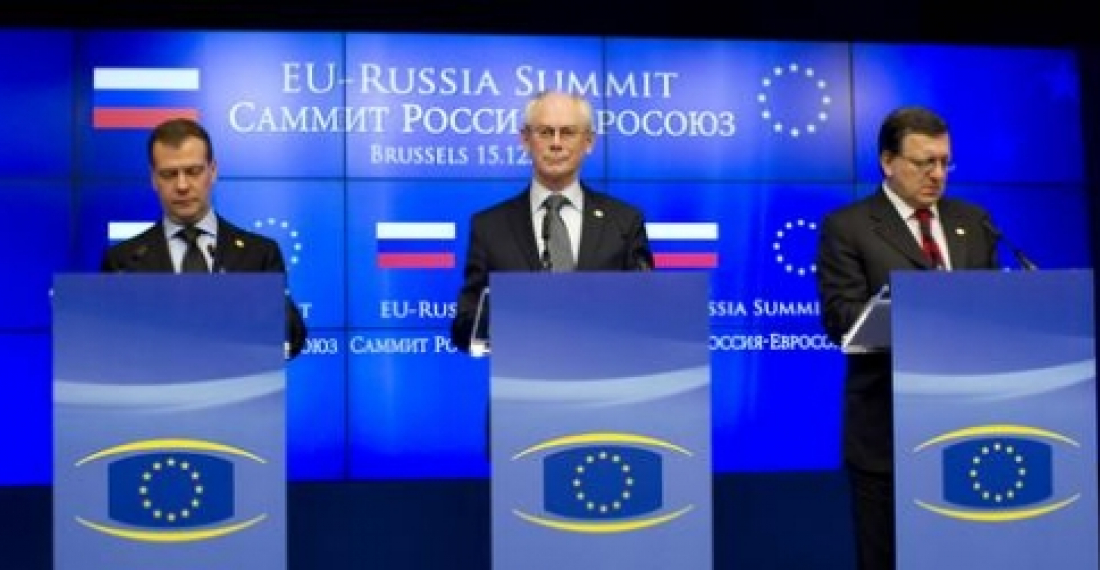The European Union and Russia held a summit in Brussels on 14 and 15 December. Russia was represented by President Dimitri Medvedev. whilst the EU was represented by Herman Van Rompuy, President of the European Council, and by José Manuel Barroso, President of the European Commission, Catherine Ashton, High Representative of the Union for Foreign Affairs and Security Policy.
Economic ties between Russia and the EU have grown substantially over the last years. Russia remains the EU's third most important trading partner in goods (after the US and China), with 87 billion EUR in exports to Russia (6.4% of all EU exports, 4th place after US, China, Switzerland) and 158 billion EUR in imports in 2010 (10.5 % of all EU imports, 3rd place after China and US, mostly natural resources). The EU is thus by far the largest market for Russian goods.
In 2010, both imports and exports rose by approximately 32 % compared to 2009, after having been hit by the global economic crisis. Russia's total account surplus rose by 47% compared to 2009 and reached $ 79 billion in 2010.
More specifically, Russia is the EU's most important single supplier of energy products, accounting for over 23% of the EU consumption of gas and 30% of its total crude oil consumption. In turn, Russia's economy remains highly dependent on the export of energy raw materials, with the EU as its most important destination. In 2010 63% of Russia's exports consisted of crude oil, oil products and natural gas. The EU accounts for 88% of Russia's total oil exports, 70% of its gas exports and 50% of its coal exports.
Commonspace.eu political editor said that despite the fact that there are currently many outstanding issues between Russia and the European Union, and despite serious concerns in the EU about the recent elections for the Russian Parliament, the two sides understand that they need to push ahead with developing relations between them and the summit was used to focus on many tangible and core issues of co-operation such as energy and citizens mobility.
source: commonspace.eu with the Press Service of the European Union
picture: courtesy of the European union







